I am not advocating vegetarianism by any stretch, but many people choose to try this lifestyle when they become interested in nutrition, animal welfare or environmental activism. If you do choose vegetarianism, there are some guidelines to follow to avoid creating severe nutritional deficiencies that can lead to thyroid problems, digestive distress and mood issues. Follow these tips to help avoid running into many of the health problems I faced after just one year of following a vegetarian diet. Read more of my story here:
Ways to Stay Healthy If You Choose Vegetarianism
1. Eat Healthy Fats
Consuming saturated fats like butter and coconut oil at each meal can help vegetarians stay healthy. These medium chain fats are easy to digest and they burn easily for quick energy. In several studies, coconut oil was shown to help increase brain function almost immediately after just a small dose. The medium chain fats in coconut oil also help to increase body temperature for a higher metabolism. Butter feeds beneficial flora in the colon for increased detoxification and immune health. A complete list of healthy fats is found here.
2. Eat Whole Eggs
The nutrition in an egg is found in the yolk. Pastured eggs from healthy omnivorous (not vegetarian!) chickens provide vitamins A and D which are crucial for good eyesight and healthy skin. The fat in egg yolks helps maintain a stable mood, which is something many vegetarians struggle with. The choline in egg yolks also helps to reduce sugar and carb cravings. Read my article here which lists 10 reasons to eat your yolks.
Another great reason to eat your egg yolks is that they are a great source of vitamin B-12 which is often lacking in a vegetarian diet. B-12 is crucial for the maintenance of red blood cells, nerve cells and for nerve cell protective membranes. B-12 in egg yolks also aids in the production of DNA and RNA, and the manufacturing of feel good neurotransmitters, such as dopamine and serotonin.
“All of the vitamin B12 in our diets must come from animal foods. For this reason, deficiencies can develop among strict vegetarians, especially vegan children. B12 deficiency is also common among older people, who lose the ability to absorb it from the stomach. Pregnant women and those who suffer from GI disorders are also at higher risk.” -Dr. Andrew Weil
If you are not vigilant about your nutritional choices, a vegetarian diet can add to GI disorders because improperly prepared grains, beans and soy can wreak havoc on your intestines! More to come on this topic…
3. Avoid Soy
If you decide to included a tiny bit of tamari or tempeh in your diet that may not rock your metabolic boat too badly, but years of processed soy foods (even tofu and soymilk) can wreak havoc on many interrelated body systems. I ate tons of low fat soy burgers and drank “slimming” soy beverages in an effort to lose weight and “be healthy.” It has taken years for me to recover. These fake foods are processed at high heats and have meany chemicals added to them to make them palatable. Traditional cultures did not eat “quorn,” right? So if if it comes in a box or in the shape of a nugget or a dog, it is most likely not going to provide real sustenance. Read my article 10 Reason to Avoid Soy here.
Soy also depletes and interferes with iodine levels. Iodine comes from foods like seaweed and wild fish. Since a vegetarian diet doesn’t include fish and is usually high in soy, vegetarians can quickly run into imbalances that affect the delicate thyroid gland. Thyroid health is so important for a robust metabolism, as well as for maintaining lean muscle mass and day-to-day energy.
4. Add Raw Milk, Butter and Cheese
Dr. Weston A. Price (president of the American Dental Association in the 1930’s) found thriving vegetarian cultures, but these cultures included very nutrient dense foods such as egg yolks, raw milk and butter in their diets. He came up with the idea that there was an x-factor in these animal foods that helped the people he studied have strong teeth and bones and be free of modern day illnesses. Today, we have identified this x-factor as vitamin K-2, and it is crucial in supporting long term heart health by preventing calcification of arteries. Vitamin K1 is converted to K2 by cows eating grass, and we need both forms to maintain optimal health. There are very limited sources of K2 and it is found mostly in animal foods.
5. Go Gluten Free
Gluten-containing grains such as barley, oats, wheat and rye have been eaten for centuries, but what has changed is the amount of gluten that each kernel contains. Hybridization efforts in the 1970 increased yield but also heightened the likelihood that people would become sensitive or even allergic. “Gluten free” is not just a phase or a fad; this change has made gluten a highly toxic substance that can affect cognitive function and memory. Gluten can also cause gut inflammation (leaky gut) that can set off the autoimmune process where the body attacks its own organs and tissues.
“Healthy” whole grains containing gluten are still very in vogue despite the fact that white bread and wheat bread have virtually the same glycemic impact, meaning they both raise blood sugar to an unhealthy level which leads to insulin resistance and even Type 2 diabetes. Eating bread at every meal creates a roller coaster feeling that increases cravings and irritability. Gluten free can go very wrong and be very unhealthy when someone favors processed and boxed products over real foods. If you choose to go gluten free stick with the basics like rice, quinoa, and amaranth for your starches instead of a gluten free pizza mix or gluten free macaroni and cheese for example. Don’t forget old fashioned foods like sweet and white potatoes are also gluten free and unprocessed.
6. Soak and sprout your grains and beans (even nuts)
If you choose to include grains and beans, it is a good idea to choose soaked and sprouted ones which helps to reduce the anti-nutrients – compounds that cause digestive inflammation and block other vitamins and minerals from being absorbed. Grains and beans are seeds, and they have protective layers that will poison predators in order to facilitate germination. Past generations have taken great pains to soak grains and legumes, but our fast food culture has forgotten how important this step is. The nutrition in a dish is increased from this soaking step, because the food becomes more digestible and the nutrients more bio-available. A good clue is to be mindful of your digestion: when foods are causing, diarrhea, gas or bloating, it is a good indication that they are not getting broken down well.
In Conclusion:
If you have started to have gas and notice you’re becoming sensitive to everything you eat, there is a good chance your body is trying to send you a message. Are you tired all the time and fly off the handle if you miss a meal? Yeah, I know how it is… I was one of those people too, and I worked with hundreds of clients who felt the same way.
How can you save the world if you can’t save yourself? If you don’t have your health then you won’t have much impact on factory farming or global warming. Some of the biggest green advocates preach that we can have a much greater impact on the food system by supporting local grass fed and organic farms than we can by simply boycotting feedlots.
By implementing these important dietary elements that I described, hopefully you will maintain optimum health while being on a vegetarian diet. I wish you only the best of health and happiness in your ongoing journey to find the best combination of foods that work with your body.
Gluten Free Vegetarian Review
If you want to be a vegetarian, do it the smart way and don’t lose your health in the process. It would be a great idea to follow the principles in my good friend Hannah’s new book that combines a gluten free diet with Weston A Price principles. Hannah is my Bay area blogger buddy who tries to help her vegetarian readers enjoy real food. She also spends a great deal of time teaching readers how to be the healthiest they can while on a vegetarian diet.
Things I love about Hannah’s book:
- New ideas for cooking vegetables in new and creative ways.
- It removes soy foods.
- It is all gluten free!
- She is also an awesome dessert maker and most of her desserts are completely grain free.
- Most of the recipes will fit into your Paleo lifestyle as well.
- It would make a great gift for your vegetarian friends and relatives that you maybe concerned are nutrient depleted.
- She teaches people how to make beans and grains healthier and more digestible by sprouting them.
- This book is perfect for someone who enjoys raw foods such as smoothies, nut dressings or cashew cheeses.
- Hannah takes great pics of her recipes that will make your mouth water!
- Perfect for anyone who wants to improve their health and nutrient density of their diet.
I have eaten Hannah’s awesome food at many potlucks and one thing she made was an amazing quiche with an almond flour crust that was to die for.
Tutorials included:
- How to poach eggs
- How to make veggie broth
- How to make cashew cream cheese
- How to make raw milk cheese and yogurt
- How to soak and sprout lentils
- How to soak and sprout rice and quinoa
- How to make ghee and almond flour
- How to make soaked hummus
- How to make almond butter
- How to make a balsamic reduction
- How to make raw thousand island dressing and many more!
Mostly Grain Free Desserts:
- Chocolate chia muffins
- Vanilla cake with chocolate frosting
- Grain free chocolate chip cookies
- Pineapple mint sorbet
- Maple coconut ice cream
- Homemade chocolate bars
- Raw fruit tart
- Coconut date rolls
- Banana spice cookies
- Date sweetened brownies
Over 120 pages of gluten-free, soy-free, meatless real food recipes along with tutorials and guides to help you make food from scratch so you can save money and be healthy !

Hannah created ‘Gluten-Free Vegetarian’ for people just like you, who want to be healthy, save money and still make delicious, nutritious and filling meals!
You DON’T have to be vegetarian to LOVE this book.
Click here to learn more!!
Don’t miss your chance to eat more vegetables than a vegetarian!
Don’t miss this 20% off sale on this great e-book!
Use the code grassfed20
I wish I had this information when I was a vegetarian!
Also You Can Enter to Win!
5 different winners will be chosen!
Sources:
http://www.drweil.com/drw/u/ART02810/facts-about-vitamin-b
http://www.westonaprice.org/fat-soluble-activators/x-factor-is-vitamin-k2
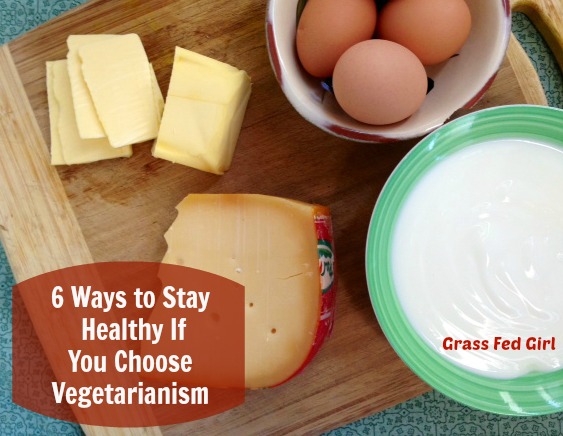
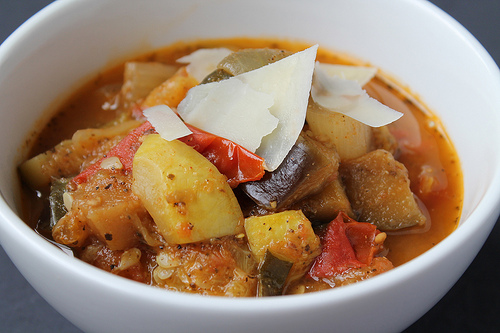
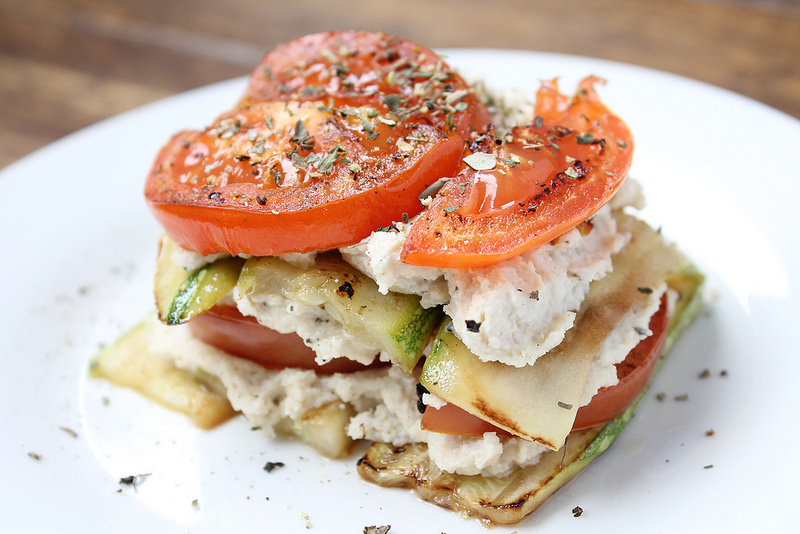
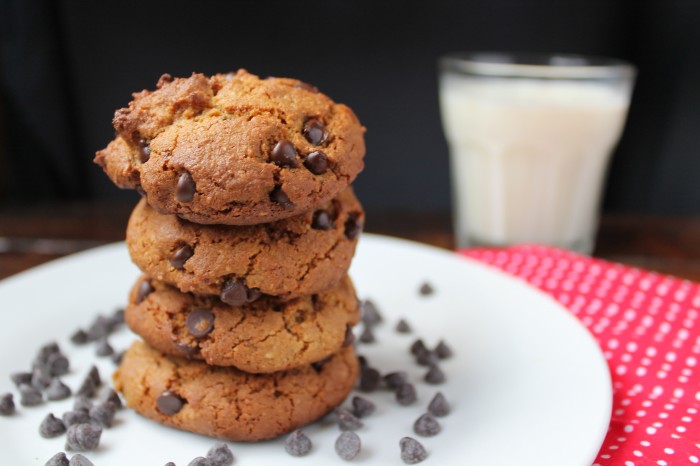


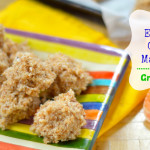
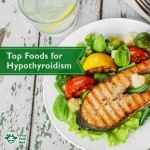
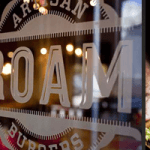
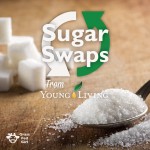
I still eat meat, but I try to eat mostly vegetarian, and I do all the things you listed. I would love some new gluten-free vegetarian recipes!
After being a vegetarian for 7 years and a pescatarian for another 7, I’m certain that this lead to my poor health. Especially my over reliance on processed soy during that whole time. I’m now paleo and recovering my gut from poor eating habits (ironically done in an attempt to be healthy) and do eat plenty of healthy pastured meat. But I still LOVE my veggies and often miss my vegetarian ways. I love when I can find things that are healthy, paleo AND vegetarian to share with my friends and family who remain vegetarians. To each their own (though I still hope to slowly convert those close to me who I know could feel so much healthier if they ditched the processed, soy-based version of vegetarian-sism)
I hope to win because I try to limit my meat, soy, and gluten consumption, this looks like a great resource for new recipe ideas!
I love cooking paleo meals and i’m always looking for some good recipes.
I would love to win to find out ways to eat healthy like I want to but get the most nutrition, I don’t want to think I’m doing good when I’m actually hurting myself by not eating the correct things. Thank you for the chance to win!
Adding a few more vegetarian meals to my menu would definitely be great health-wise and also on my budget! Thanks for hosting this!
I just started eating paleo – I am desperately trying to find new good recipes – I seem to be stuck in a rut – the recipe book sounds AMAZING!!!!
I’ve been diagnosed as “pre-diabetic” due to my A1C number…with my primarily vegan diet, I have been eating a lot of grains and am now looking for healthy non-grain food items 🙂